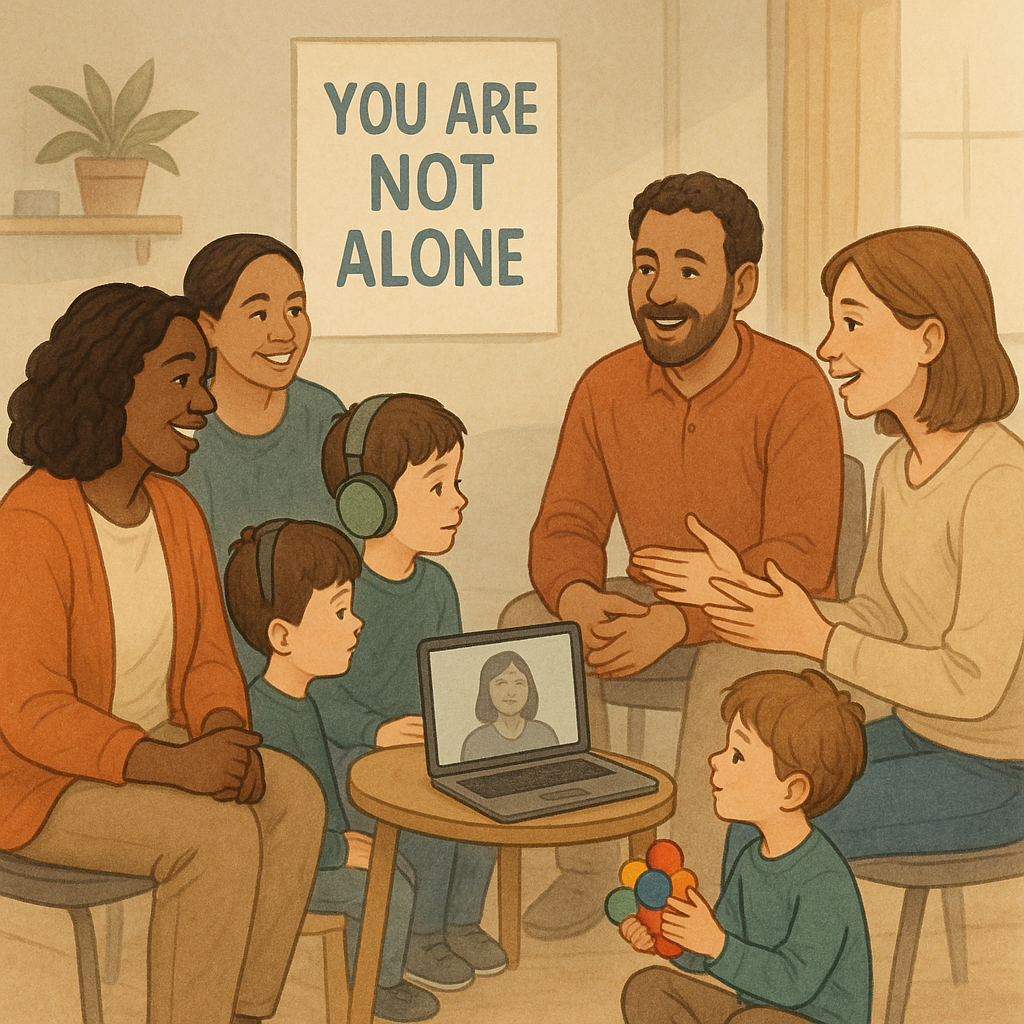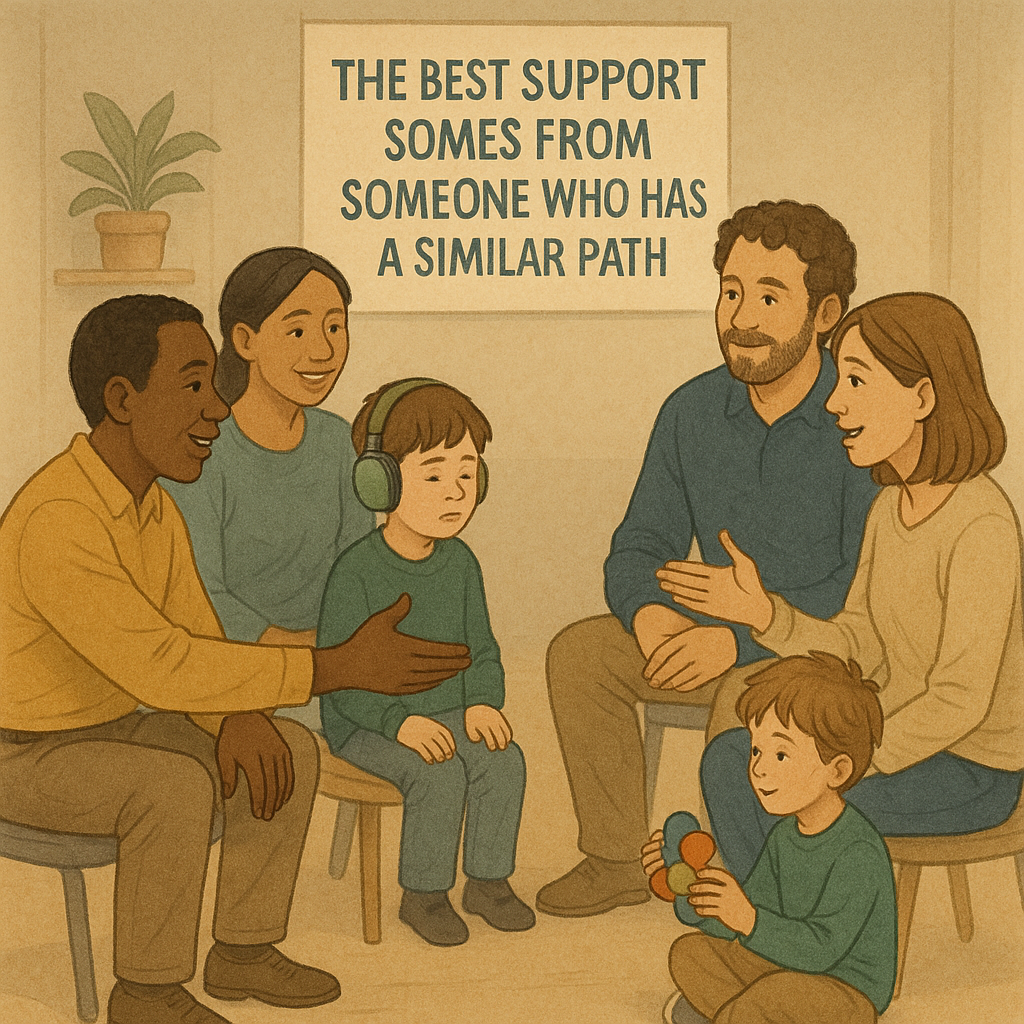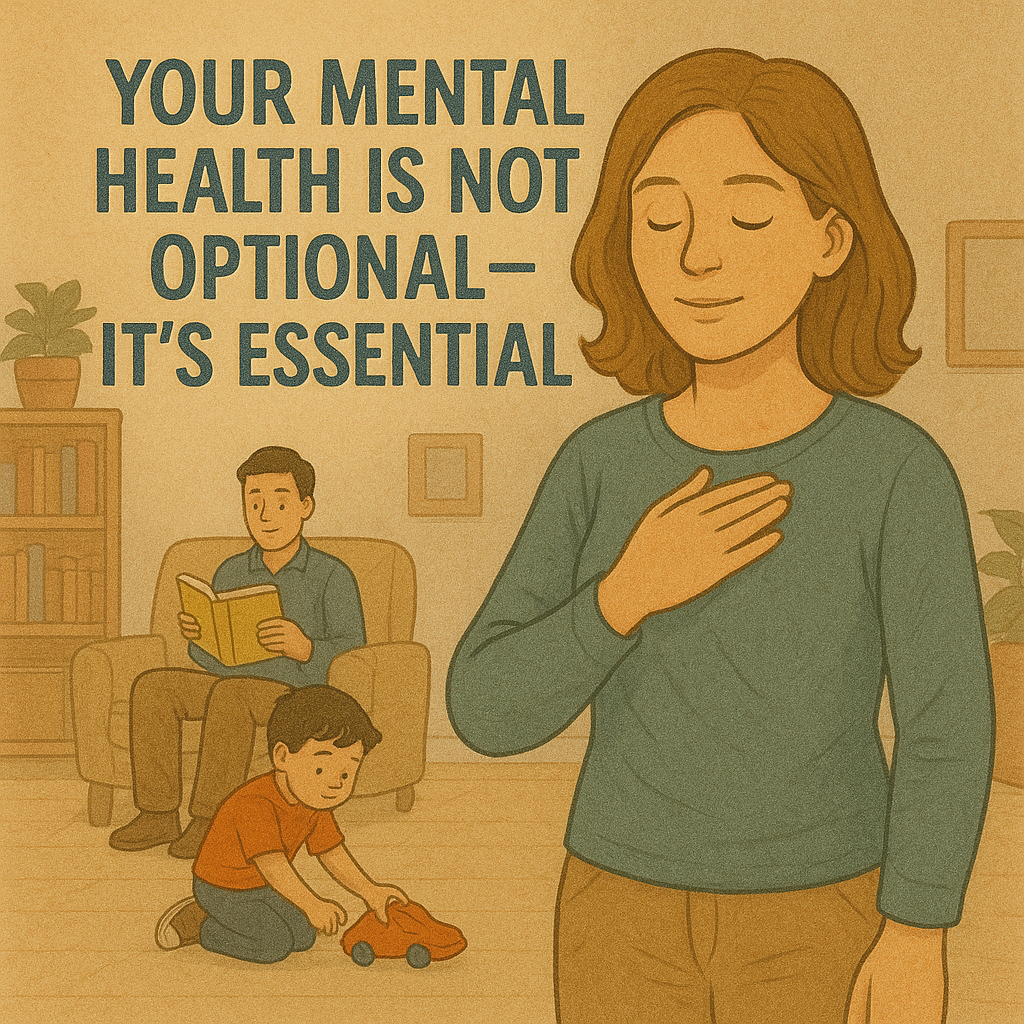Support and community
Support Groups for Parents: How and Where to Find Them
Support Groups for Parents: How and Where to Find Them
Objective: Inform parents about the value of connecting with others in similar situations and how to find in-person or virtual support groups.
You Are Not Alone. Raising a neurodivergent child can be both challenging and enriching. Having a network for emotional and informational support makes a big difference.
What do support groups offer?
- Safe spaces to share experiences without judgment.
- Information on resources, therapies, and rights.
- Emotional support during difficult times.
Types of groups available:
- In-person: Professional Behavioral Therapy Service Centers, at community centers, hospitals, and schools.
- Virtual: forums, Facebook groups, Zoom meetups.
- Condition-specific: autism, ADHD, dyslexia, etc.
How to find the right one:
- Ask therapists, counselors, or local associations.
- Search social media with keywords (e.g., «autism parents group [your city]»).
- Join first as a listener if you’re not ready to share.
Tips for parents:
- Choose a group where you feel safe and respected.
- Remember that giving and receiving support is an act of courage.
- You don’t have to do it all alone—sharing the journey lightens the load.
Key phrase to remember: «Sometimes, the best support comes from someone who has walked a similar path.»


Caring for Your Mental Health as a Parent of a Neurodivergent Child


Objective: Provide strategies to help parents prioritize their emotional well-being without guilt, recognizing that their balance is part of their caregiving role.
Your Well-being Matters Too. Caring for a neurodivergent child requires emotional, mental, and physical energy. Taking care of yourself is not selfish—it is necessary to sustainably care for others.
Warning signs of burnout:
- Frequent irritability or sadness.
- Trouble sleeping or concentrating.
- Feeling like you’re on autopilot.
Strategies to support your mental health:
- Personal time: Even 10 minutes a day just for you makes a difference.
- Emotional support: Talk with other parents, seek therapy, or join support spaces.
- Movement and rest: Walk, stretch, and sleep as much as you can.
Changing the narrative:
- You’re not weak for asking for help.
- Self-care doesn’t make you less committed.
- Prioritizing yourself is also a way of loving your child.
Tips for parents:
- Write down activities that bring you joy and aim to do one a day.
- Set healthy boundaries when needed, without guilt.
- Remind yourself: being a good caregiver starts with caring for yourself.
Key phrase to remember: «Your mental health is not optional—it’s essential.»
